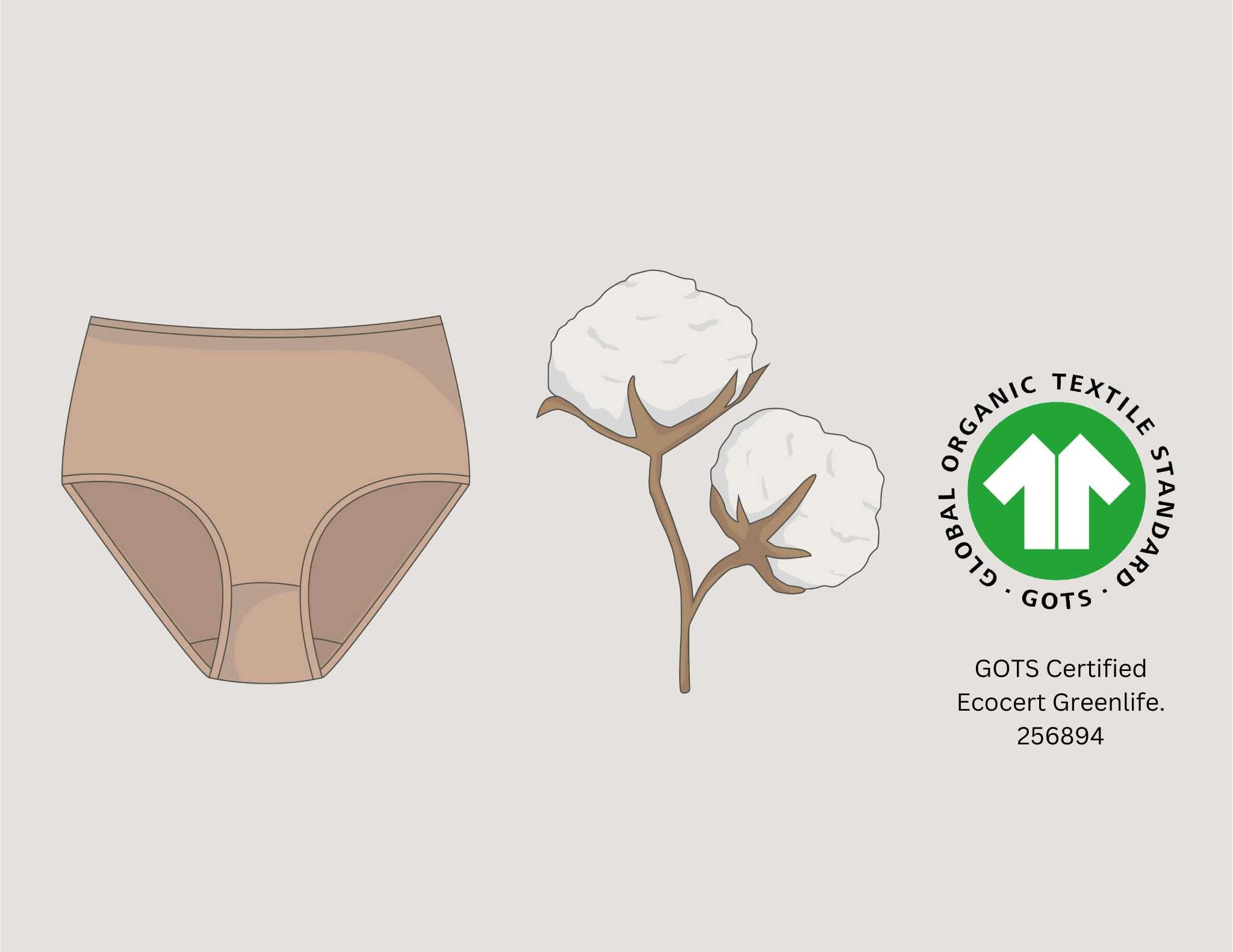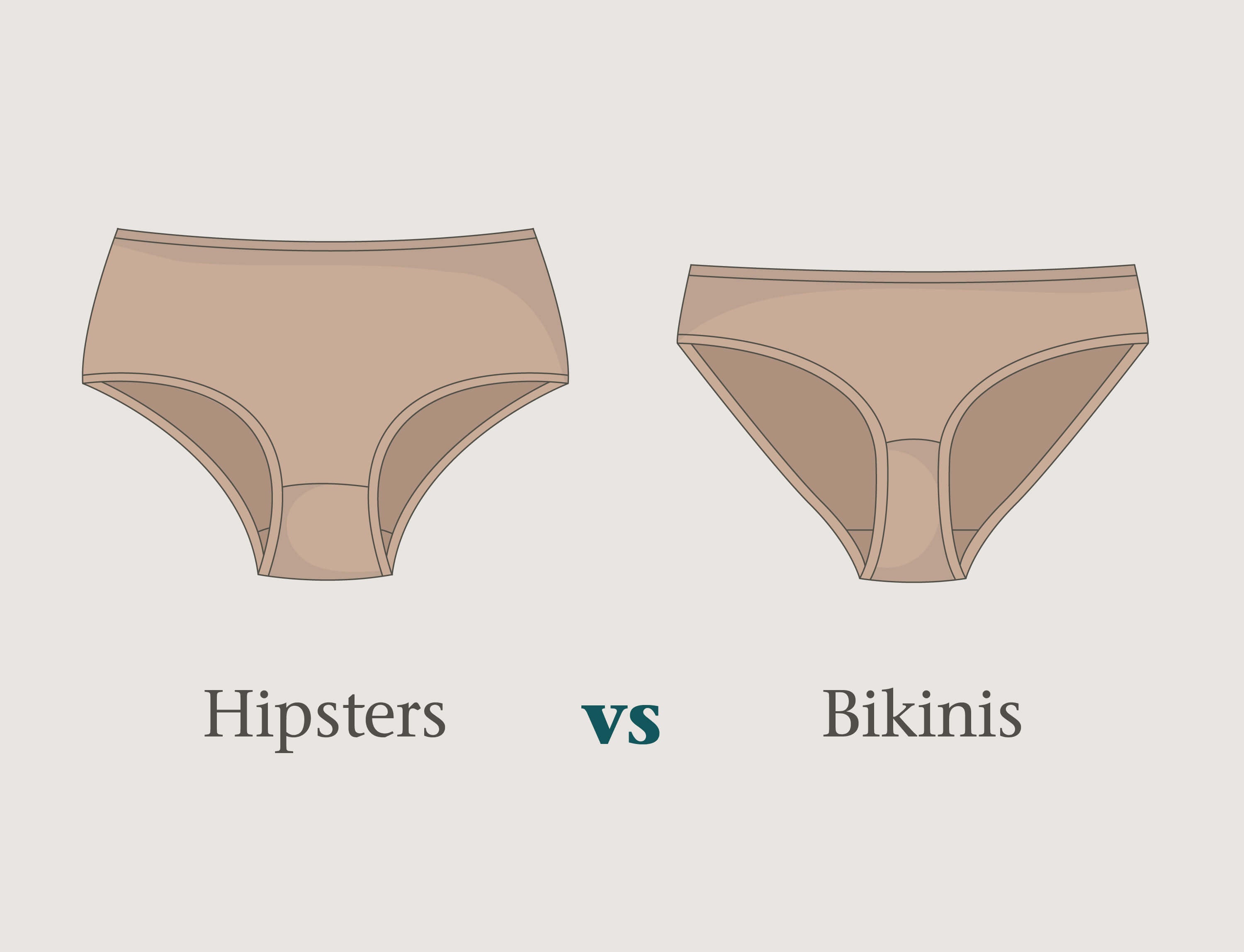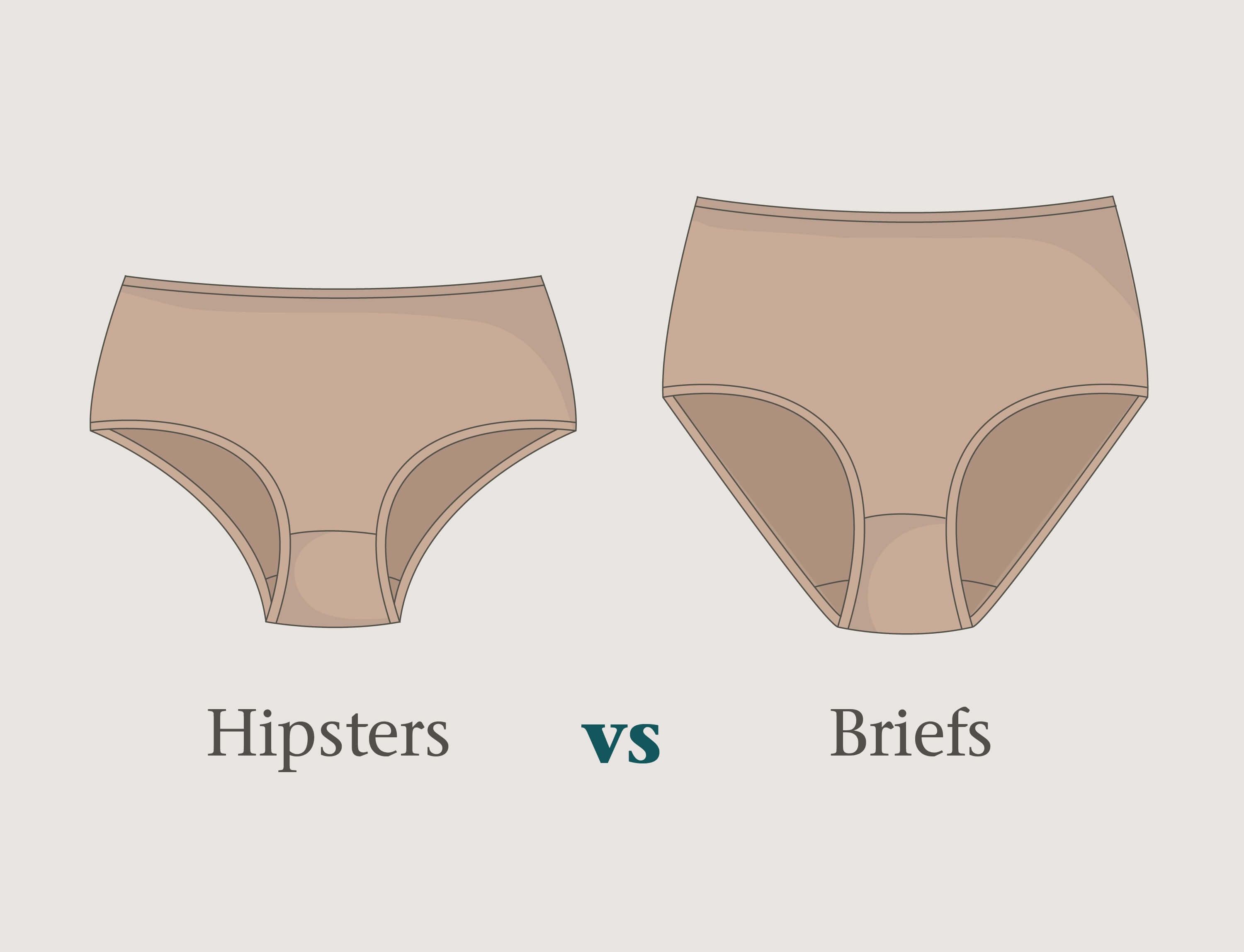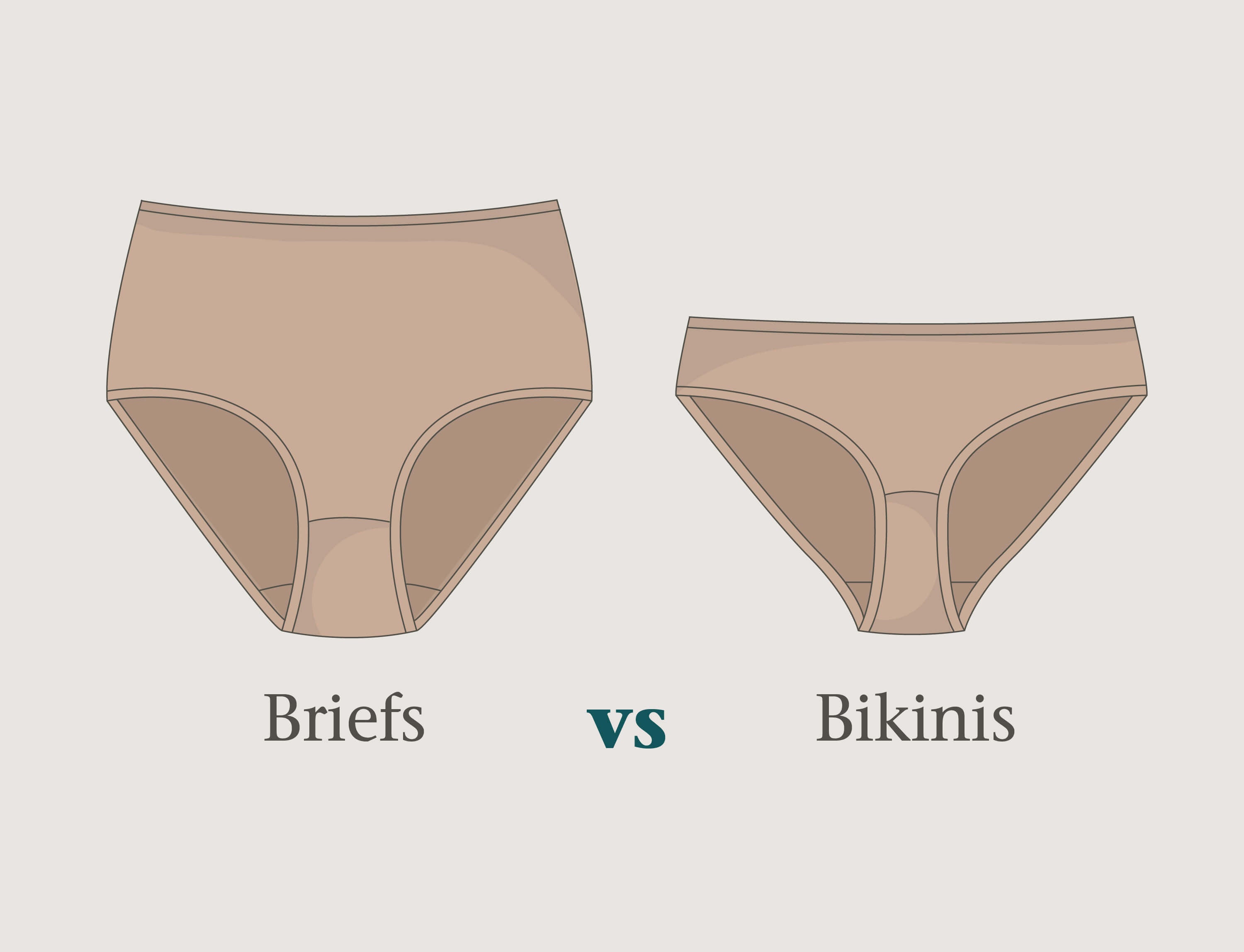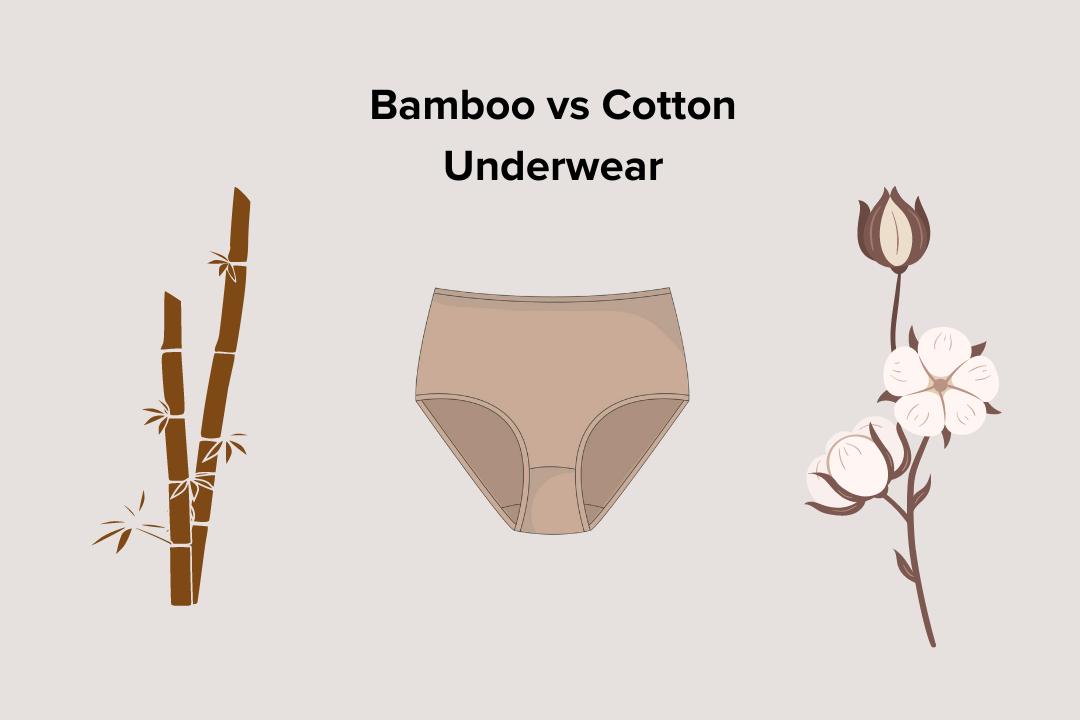
Bamboo vs Cotton Underwear: Which is Better?
When selecting the best material for underwear, the debate often centers around bamboo vs cotton underwear. Each material brings distinct advantages and challenges. This exploration will help you understand both, highlighting the benefits of cotton, a classic choice known for its comfort and sustainability.
Cotton Underwear Characteristics: Pros and Cons
Women’s organic cotton underwear remains a wardrobe staple due to its natural properties and wide availability. When comparing bamboo fiber vs. cotton underwear, it's helpful to understand the detailed process of how cotton is produced and made, along with its key advantages and disadvantages.
Cotton cultivation begins with planting cotton seeds in fertile fields. After growing, the cotton plants are harvested, and the cotton fibers are extracted from the bolls. These fibers are then thoroughly cleaned to remove impurities and seeds before being carded to align them. Next, the carded fibers are spun into yarn, woven or knitted into fabric.
That said, not all cotton is the same. Organic cotton vs regular cotton—what sets them apart? Organic cotton is cultivated without harmful pesticides and processed using sustainable methods, making it a more eco-friendly and skin-friendly option.
100 percent organic cotton underwear for women is an excellent choice for those seeking comfort and sustainability. Its natural breathability, softness, and eco-friendliness make it a superior option for everyday wear.
Pros of Cotton Underwear
Cotton underwear offers several benefits that make it a preferred choice for many. Here are the main advantages:
- Natural Comfort: Cotton is celebrated for its soft texture, providing unmatched comfort directly against the skin.
- Breathability: Its natural fibers make it the most breathable underwear, allowing for excellent air circulation and helping to keep the skin cool and dry.
- Durability: Strong fibers ensure that cotton underwear withstands numerous washes, maintaining its integrity over time.
- Ease of Care: Cotton is notably easy to care for; it tolerates machine washing well, making it convenient for everyday use.
Cons of Cotton Underwear
While cotton underwear has many benefits, there are some drawbacks to consider as well
- Moisture Absorption: Cotton tends to absorb moisture while breathable,
- Drying Time: Cotton can be slow to dry, which might be inconvenient for those needing a quick turnaround.
- Shrinkage: Cotton can shrink when exposed to high temperatures during washing or drying.
- Not Ideal for Seamless Designs: Cotton's natural fibers lack the necessary stretch and elasticity for seamless designs. For more cotton fabric details and limitations for seamless design, check out our article, Why 100% Seamless Organic Cotton Underwear Does Not Exist.
Bamboo Underwear Characteristics: Pros and Cons
Bamboo underwear is becoming increasingly popular due to its distinctive properties and sustainability. The fabric is produced from bamboo pulp, which undergoes a process involving its dissolution in a chemical solution to transform into fibers. These fibers are then spun into yarns, resulting in a soft material. Bamboo grows quickly, is renewable, and requires less water and no pesticides, making it a compelling alternative in the debate of bamboo viscose vs cotton underwear and bamboo rayon vs cotton underwear. Let's explore, is bamboo underwear better than cotton?
Pros of Bamboo Underwear
Here are the key benefits of bamboo underwear:
- Moisture-Wicking: Bamboo fabric pulls moisture away from the skin, keeping you dry and comfortable throughout the day.
- Thermal Regulation: This material adjusts to body temperature, providing warmth in cold weather and coolness in hot weather.
- Antimicrobial Properties: Bamboo's naturally occurring antimicrobial properties help reduce bacteria and odor, ensuring freshness.
At Q for Quinn, we are proud to complement these antimicrobial benefits with our organic, naturally plant-dyed underwear collection. This collection supports better skin health and provides a superior choice to bamboo. Unlike bamboo, which often requires chemical processes in its production, our organic approach ensures a healthier and more environmentally responsible option.
Cons of Bamboo Underwear
Despite its advantages, bamboo underwear also presents some challenges that are important to consider:
- Chemical Processing: The chemicals used in converting bamboo into fabric can have environmental impacts unless managed in closed-loop systems.v
- Durability Issues: While soft and comfortable, some bamboo fabrics can be less durable than traditional textiles, showing wear through pilling or thinning over time.
- Care Requirements: Bamboo underwear often requires delicate care, such as cold water washes and air drying, to maintain its integrity and softness
Cotton vs Bamboo Underwear: Comparing Materials
Choosing the right underwear is crucial for comfort and health, with cotton and bamboo being two popular choices. This comparison, focusing on bamboo underwear vs cotton, will illustrate why cotton might be superior to many, highlighting its properties across various aspects.
Softness and Skin Sensation
- Cotton: Cotton is naturally soft and gentle on the skin, providing comfort that is well-suited for everyday wear. Its texture remains consistent over time, offering reliability in its feel.
- Bamboo: While bamboo fabric can be exceptionally silky and may initially feel softer than cotton, its consistency in softness can vary significantly based on how it's processed and treated. This variability can affect the overall comfort and durability of bamboo underwear compared to the dependable softness of cotton.
Health Consideration
- Cotton: Cotton's hypoallergenic properties are ideal for sensitive skin or allergies. Its natural fibers do not irritate the skin, making cotton healthier for long-term wear.
- Bamboo: Bamboo is also hypoallergenic. However, the chemical processes involved in manufacturing bamboo fabric may be of concern to the most sensitive users.
Eco-friendliness
- Cotton: Cotton is biodegradable and comes from renewable sources. However, traditional cotton farming demands considerable water and chemical use; in contrast, organic cotton farming employs methods that reduce environmental impacts, making it a more sustainable choice.
- Polyester: Polyester's main disadvantage is its environmental impact; it's derived from petroleum and is not biodegradable. The production process is energy-intensive and contributes to pollution.
Breathability
- circulation that helps regulate body temperature and keep the skin cool and dry. Its inherent properties ensure consistent breathability, supporting optimal skin health and comfort without artificial enhancements.
- Bamboo: While bamboo fabric also promotes breathability, it often depends on the specific manufacturing process, which might include chemical treatments to enhance these features.
Conversely, cotton offers natural breathability, making it more reliable for comfort and skin well-being.
Style Variety
- Cotton: Thanks to its widespread use, cotton underwear is available in many styles, colors, and designs. This broad selection ensures that all preferences and needs are catered to, allowing consumers to find the perfect fit for any occasion. Explore Q for Quinn’s diverse types of underwear, each crafted to offer comfort and style seamlessly.
- Bamboo: Although bamboo underwear is gaining popularity and the options are gradually increasing, it still does not match the extensive variety offered by cotton. This limits consumer choices somewhat, as bamboo underwear has yet to reach the same breadth in styles and design innovations found in cotton selections.
Eco-Friendliness
- Cotton: Organic cotton is sustainable but requires significant water and land. Non-organic cotton uses pesticides and chemicals, negatively impacting the environment.
- Bamboo: Bamboo is inherently more sustainable, growing quickly and requiring less water and no pesticides, though its chemical processing can diminish these benefits.
Cost-effectiveness
- Cotton: Cotton generally offers better cost-effectiveness, especially considering the fabric's long-term durability and widespread availability.
- Bamboo: Bamboo underwear is typically more expensive, which can add up over time, especially considering potential durability issues.
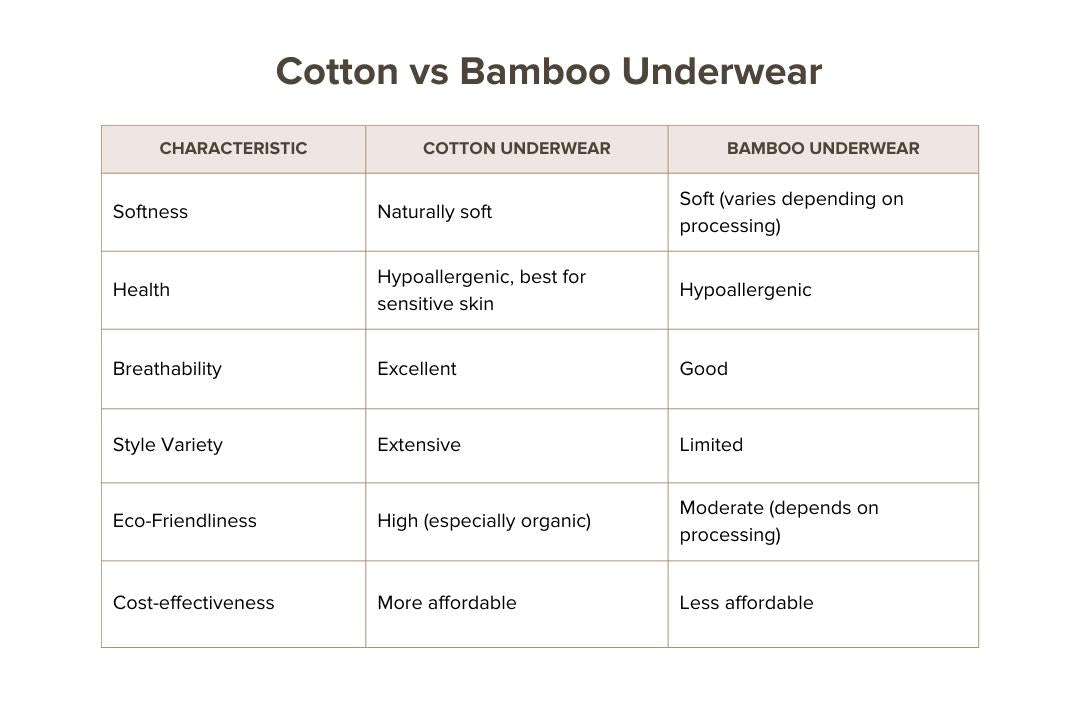
Why Choose Q for Quinn for Cotton Underwear?
When selecting the ideal underwear, Q for Quinn stands out for its commitment to quality, comfort, and sustainability. Here are the key reasons to choose Q for Quinn for your cotton underwear needs:
- Superior Quality and Comfort: Our underwear is crafted from the highest quality cotton fibers, ensuring softness, comfort, and durability for everyday wear.
- Hypoallergenic Properties: Our cotton underwear for sensitive skin is free from harsh chemicals and synthetic fibers, minimizing skin irritation and allergies.
- Sustainable Practices: We use organic cotton grown without harmful pesticides or chemicals, supporting sustainable farming and reducing environmental impact.
- Size and Fit Variety: We offer a comprehensive range of sizes and tailored fits to accommodate all body types, ensuring everyone can find their perfect match.
Choose Q for Quinn for cotton underwear that combines comfort, style, and a commitment to positive impact.
Final Thoughts
In comparing bamboo vs cotton underwear, cotton emerges as the superior choice for everyday comfort and reliability. Q for Quinn exemplifies this preference by offering high-quality cotton underwear that prioritizes skin health and environmental sustainability. Choose Q for Quinn for your underwear needs to enjoy the ultimate blend of comfort, style, and commitment to sustainable practices.




